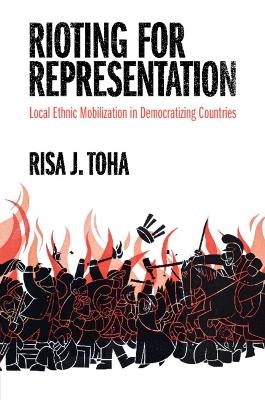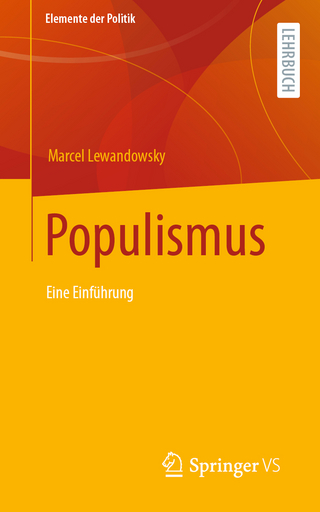
Rioting for Representation
Local Ethnic Mobilization in Democratizing Countries
Seiten
2024
Cambridge University Press (Verlag)
978-1-009-00195-3 (ISBN)
Cambridge University Press (Verlag)
978-1-009-00195-3 (ISBN)
Incorporating new data from Indonesia and an array of methods, this book demonstrates that excluded ethnic groups mobilize violence during political transition in multi-ethnic settings to demand representation in local politics. Once these demands are met, violence dissipates. For students and scholars of comparative politics and ethnic conflict.
Ethnic riots are a costly and all too common occurrence during political transitions in multi-ethnic settings. Why do ethnic riots occur in certain parts of a country and not others? How does violence eventually decline? Drawing on rich case studies and quantitative evidence from Indonesia between 1990 and 2012, this book argues that patterns of ethnic rioting are not inevitably driven by inter-group animosity, weakness of state capacity, or local demographic composition. Rather, local ethnic elites strategically use violence to leverage their demands for political inclusion during political transition and that violence eventually declines as these demands are accommodated. Toha breaks new ground in showing that particular political reforms—increased political competition, direct local elections, and local administrative units partitioning—in ethnically diverse contexts can ameliorate political exclusion and reduce overall levels of violence between groups.
Ethnic riots are a costly and all too common occurrence during political transitions in multi-ethnic settings. Why do ethnic riots occur in certain parts of a country and not others? How does violence eventually decline? Drawing on rich case studies and quantitative evidence from Indonesia between 1990 and 2012, this book argues that patterns of ethnic rioting are not inevitably driven by inter-group animosity, weakness of state capacity, or local demographic composition. Rather, local ethnic elites strategically use violence to leverage their demands for political inclusion during political transition and that violence eventually declines as these demands are accommodated. Toha breaks new ground in showing that particular political reforms—increased political competition, direct local elections, and local administrative units partitioning—in ethnically diverse contexts can ameliorate political exclusion and reduce overall levels of violence between groups.
Risa Toha is Assistant Professor of Political Science at Yale-NUS College in Singapore. Her work has focused on questions related to political violence, identity, and political economy, appearing in journals such as the British Journal of Political Science, Terrorism and Political Violence, and Journal of Contemporary Southeast Asia.
1. Introduction; 2. Exclusion and violence during democratic transitions; 3. The emergence of identity-based cleavages in Indonesia; 4. Ethnic politics in Soeharto's new order regime; 5. Golkar's dominance and ethnic riots; 6. Micro dynamics of exclusion and riots; 7. How riots dissipated; 8. Conclusion; Glossary; References: Index.
| Erscheinungsdatum | 09.03.2024 |
|---|---|
| Reihe/Serie | Problems of International Politics |
| Zusatzinfo | Worked examples or Exercises |
| Verlagsort | Cambridge |
| Sprache | englisch |
| Maße | 152 x 229 mm |
| Gewicht | 470 g |
| Themenwelt | Sozialwissenschaften ► Ethnologie |
| Sozialwissenschaften ► Politik / Verwaltung ► Vergleichende Politikwissenschaften | |
| Sozialwissenschaften ► Soziologie | |
| ISBN-10 | 1-009-00195-7 / 1009001957 |
| ISBN-13 | 978-1-009-00195-3 / 9781009001953 |
| Zustand | Neuware |
| Haben Sie eine Frage zum Produkt? |
Mehr entdecken
aus dem Bereich
aus dem Bereich
Geschichte, Parteistruktur, Radikalisierung
Buch | Softcover (2024)
UTB (Verlag)
27,90 €


